Events
Events / 02/18/2018 / 1806
During the month of February, an exhibition was shown at the Ethnographic Museum in Plovdiv to depict folk traditions related to St Tryphon's Day celebration.
Saint Tryphon is regarded in Bulgaria as a protector of winemakers and vinegrowers, similar to other countries of Eastern Europe where the predominant religion is Orthodox Christianity. In urban areas, St. Tryphon is also a patron saint of restaurant owners and merchants who organized church processions through the town on 14th February.
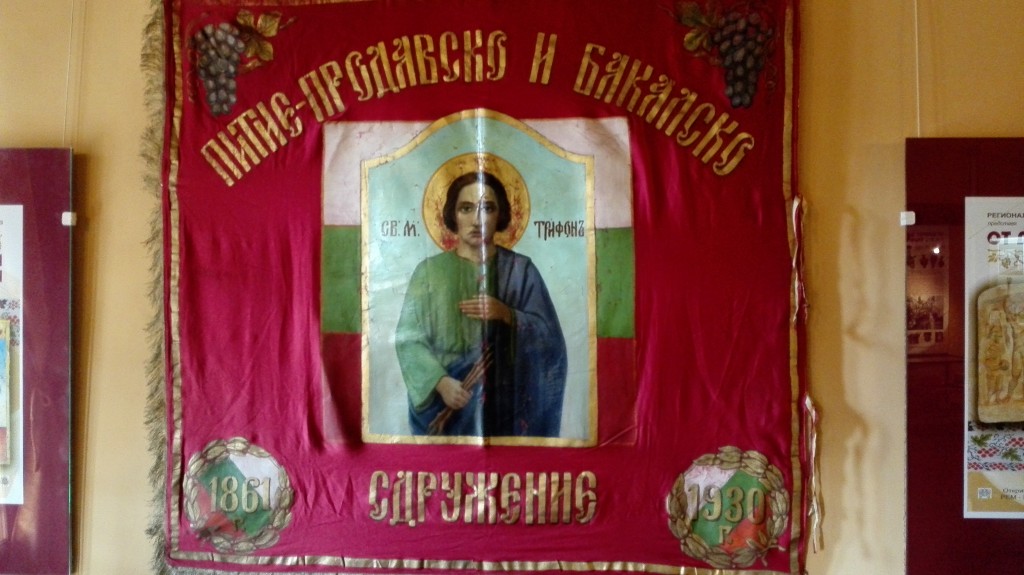 Church banner owned by association of merchants and inn keepers
Church banner owned by association of merchants and inn keepers
St. Tryphon's Day is one of numerous holidays in the folk calendar where the old gods were replaced by Christian saints. Thus in Bulgaria, the Thracian god of fertility and wine Dionysus was substituted by Saint Tryphon.
Wine has long been considered a "divine drink". It is primarily because its consumption allowed people to reach the state where they felt closer to gods. The feast became popular because it included public celebration and singing. Dionysus symbolized unbridled youth and unity with nature, while the Christian saint received Christian symbolism - the indestructible power of religion for which the martyr is willing to suffer. However, the folk image of St. Tryphon is quite different. Trifun Zarezan holds a scythe in his hand. It is meant to provide bountiful harvest, and the day of St Tryphon is the holiday marking eternally youthful and renewing nature.
Folk customs associated with the Day of Saint Tryphon
Early in the morning, the family gathers with friends and neighbours, accompanied with music performed on bagpipes and kaval flute, and they all go to the vineyard. They bring food, usually a roasted or cooked chicken, festive bread and some wine.
All present first make the sign of the cross three times, facing eastwards. Then they prune three vines in the vineyard, sprinkle them with wine and bless. A dialogue with magic symbolism is taking place: Someone cries: "Tryphon, where are you?" And others say, "Under the vine, you can not see me because of the grapes." Then the first one answers: "Let the grapes grow so abundantly next year as well."
After pruning the vines, the fire is made and sumptuous buffet is prepared. Then, the feast starts, accompanied with singing and dancing. Winemakers raise a toast and say: "God and Saint Tryphon, help us have a bountiful harvest so that grape pickers don't manage to pick all grapes."
According to folk belief, Saint Tryphon is a brother of the Holy Virgin Mary. 40 days after the birth of Jesus, Saint Tryphon visited his sister and the baby. He was wondering how come she had a child but no husband. She answered to him to mind his own business, otherwise he could lose his nose. As she was imitating with her hand the movements of pruning vine, she really hit him and cut off his nose. This is why people often call this Saint "Zarezan". In this folk legend, we find echoes of the myth about the Thracian emperor Lycurgus who expelled Dionysus and his followers from the court. Furious Dionysus cast a spell on Lycurgus and clouded his judgement. Consequently, Lycurgus killed his son, believing that he was pruning a vine.
"Wine Tsar"nomination
The custom known as "wine tsar" nomination is practiced on St Tryphon's Day only in the villages of North Bulgaria. The roots of this custom can be traced to Dyonisian festivals that took part prior to arrival of the spring in ancient Thrace.
In the middle of the pruned vineyard, a table is set with bread, chicken, wine, basil, red thread and three branches of grapevine. Then the eldest of the present says: "Let the honourable person take this branch and be Tryphon (in some villages they say" let him be the Tsar "). When appointing the tsar, it is important to choose a respectable, honest man of integrity, but it is equally important that the person is a "kismetlija", or a man of good fortune, so that vines prosper during his reign.
When they finish eating and drinking, everybody goes home to the village. The wine tsar puts a wreath of vines around his head and another wreath across his chest. Then he mounts a cart pulled by other winemakers and they go from house to house. The hosts bring wine from the cellar, offer it as a treat and they all drink in turns. The wine that is not consumed gets poured on the tsar's head followed with the words: "Let's make it a bountiful year, let the wine flow over the rim!". The tsar answers: "Amen!". Thus, the tsar returns home after visiting the village completely wet. The practice of spilling wine on the head of the emperor comes from ancient Thrace. It was described by the ancient Greek writer Xenophon 400 years B.C.
Upon returning home, the tsar changes his clothes and sits at the table with family members and friends. A plentiful dinner follows, during which all guests get drunk. The tsar is also expected to get drunk in order to imitate the saint who is also called Narezan or Pijanica (Drunkard). All day long, the sound of bagpipes, music, singing and joy echo through the village streets.
(18.02.2018)

Tomislav Ivanović
Awarded wine writer, wine critic and contributor to selected wine magazines. WSET3-certified author and editor-in-chief of www.vinopedia.rs. Member of Vojvodina Sommelier Association. Juror in national and international wine competitions. Lecturing about wines of Serbia and the Balkans. Local partner of Wine Mosaic organization. Co-founder of International Prokupac Day.
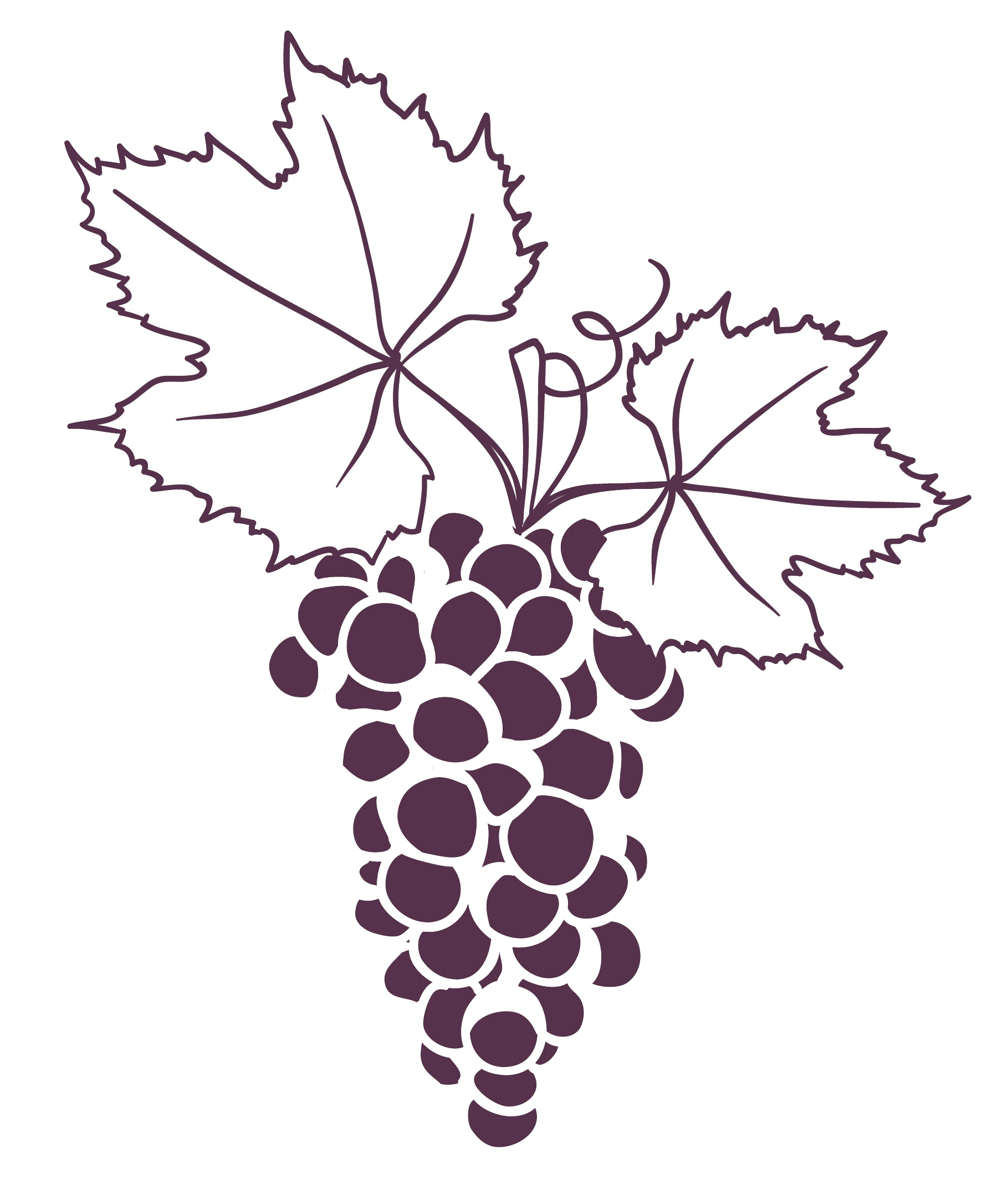
Pročitajte i druge članke iz ove rubrike:
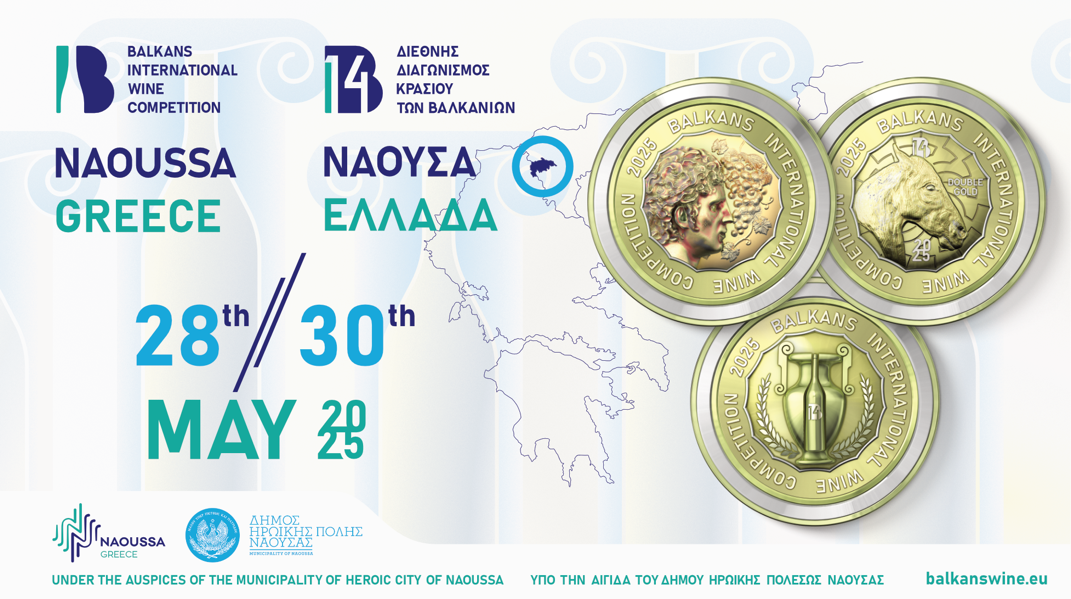

BIWC 2025 - NOVA ERA ZA BALKANSKA VINA
PROČITAJ VIŠE


POČINJE WINEOS 2025 U OSIJEKU
PROČITAJ VIŠE
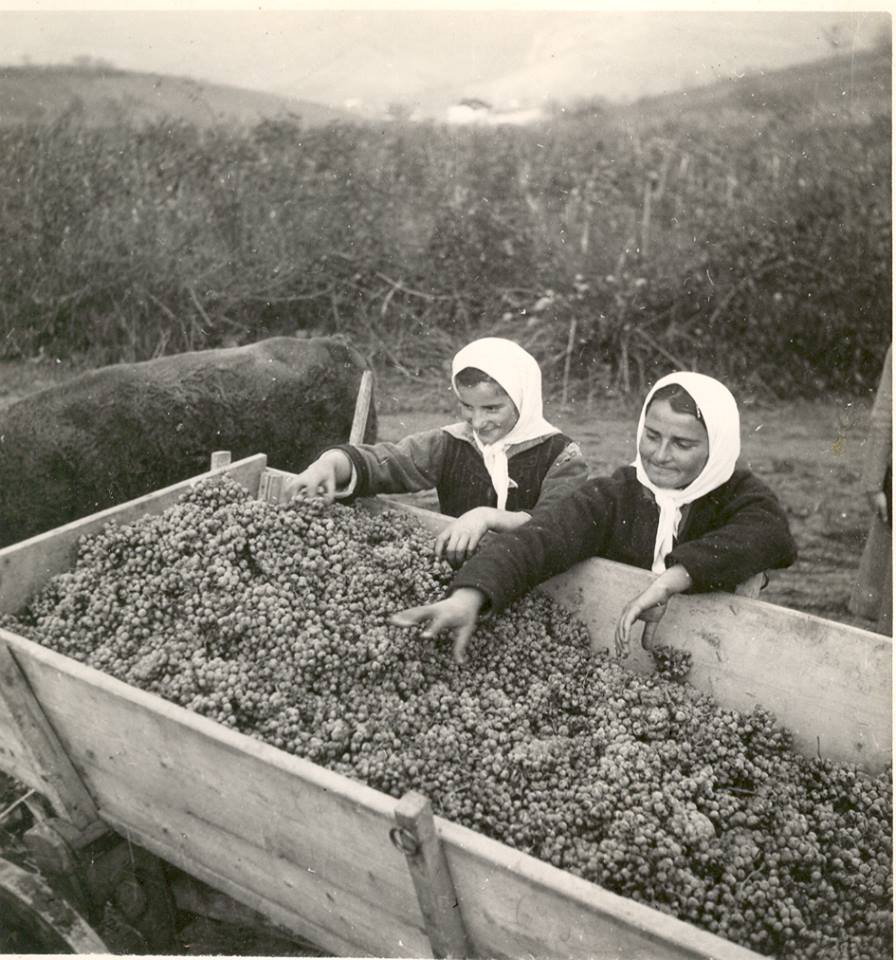

ŽUPSKI KARAVAN PROKUPCA 2024
PROČITAJ VIŠE
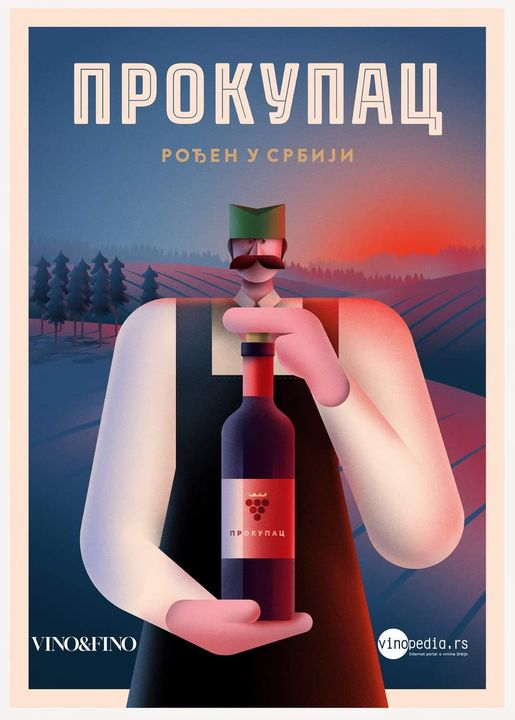

PROKUPCI IZ SVIH REJONA, UJEDINITE SE!
PROČITAJ VIŠE
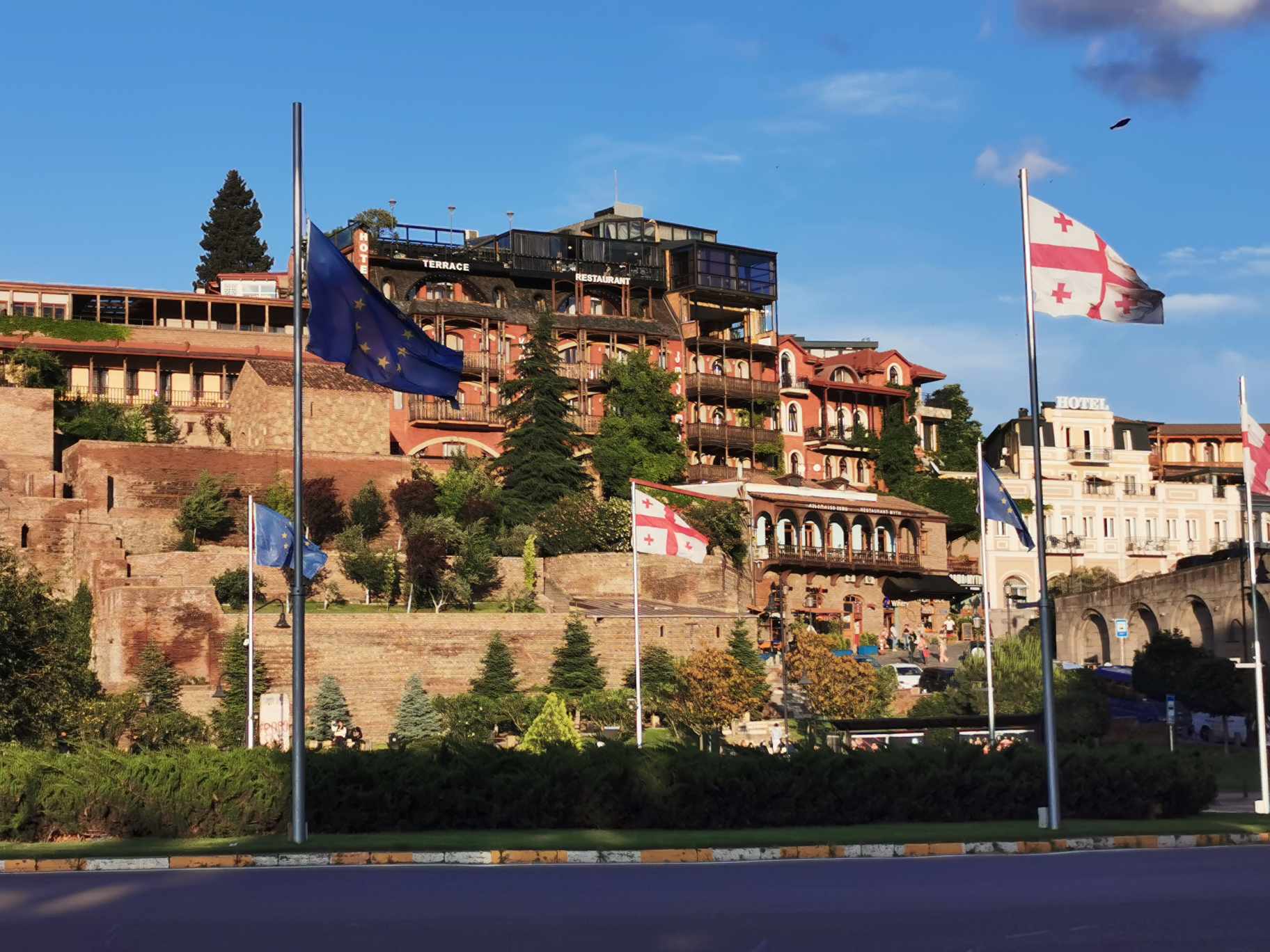

MARNAVELI VINARIJA - U GRUZIJSKOJ KOLEVCI VINA
PROČITAJ VIŠE
Winner MILLESIMA BLOG AWARD 2016

Pobednik MILLESIMA BLOG AWARD 2016
VINO & FINO wine personality of the year 2016

VINO & FINO vinska ličnost godine 2016